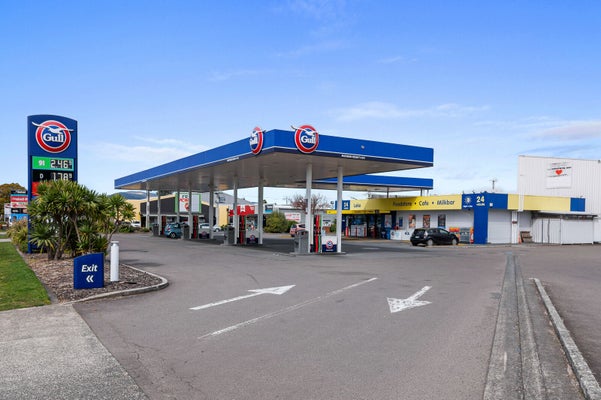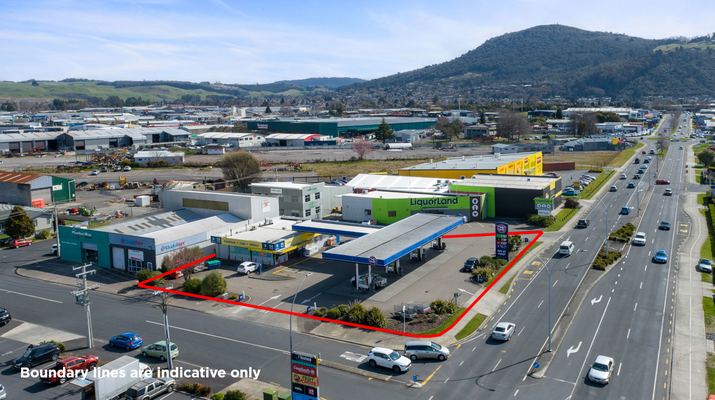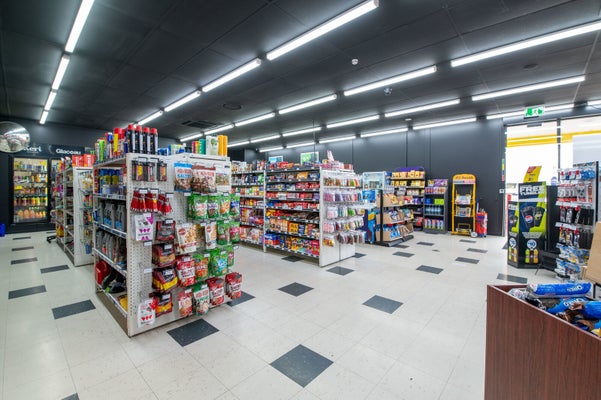Commercial -
Landmark fuel station site goes on market

The site that has housed a Gull service station for nearly a quarter century on a busy Rotorua arterial route is up for sale.
The standout corner property on Lake Road was purpose-built for the national low-cost fuel chain in 2001. Its position on a key thoroughfare linking State Highway 5 with the city centre gives it excellent year-round exposure to local and visiting traffic in one of New Zealand’s top tourist destinations.
Gull Lake Road operates 24/7, supplying a range of petrol and diesel fuels from its covered forecourt, plus food, coffee and convenience retail offerings from a 24-hour Night ‘n Day branded store.
Gull fully occupies the more than 2,100-square-metre Lake Road site with a current lease that runs to 2031, and renewal options extending to 2041.
The lease generates a net rental return of $222,355 plus all outgoings and GST per annum.
Since making its first retail petrol sale in 1999, Gull has expanded to more than 120 sites across New Zealand. It sells over 500 megalitres of fuel each year, commanding about an eight percent share of the country's liquid fuel market.
As a low-cost retailer, Gull is credited with shaking up the fuel market by keeping it competitive. This often sees other fuel companies drop their prices in areas where Gull sets up shop, in what the Automobile Association has tagged the ‘Gull Effect’.
The freehold land and buildings at 112 Lake Road, Rotorua, are being offered for sale through Mark Slade, Damien Keenan and Brei King of Bayleys Rotorua.
The property is being sold by way of a tender closing on Thursday 30th October.
Slade said the sale was likely to appeal widely to buyers in search of a quality passive investment.
“Commercial property opportunities of this calibre, combining scale, exposure and blue-chip income, are rarely on offer in Rotorua. This one is sure to catch the eye of investors from well beyond the city who are seeking a bankable asset with rock-solid returns and future upside,” Slade said.
The approximately 220 square metres of service station buildings are underpinned by some 2,121 square metres of industrial-zoned land, with seven-plus on-site car parks.
The zoning provides for a mix of light-industry and commercial activities that are generally associated with large sections in locations with high traffic flows.
Keenan said visibility and site access were maximised by around 100 metres of street frontage and three vehicle access points from Lake Road and Karaka Street.
“This exceptional accessibility, corner profile and exposure to busy arterial traffic volumes are key ingredients that have sustained the successful operation of a service station at this site for nearly 25 years,” said Keenan.
King said the strategic Lake Road location placed the station a few hundred metres from State Highway 5, a vital route carrying traffic into Rotorua from destinations north and south.
“To the east, Lake Road leads directly to the city centre and lakefront precinct with its concentration of tourist attractions, visitor accommodation and commercial businesses,” she said.
King said businesses in Rotorua benefited from a central North Island location easily accessible to major population centres.
“Steady population growth and economic development are driving business activity and investment in the city,” she said.
Rotorua’s population swelled by 20 percent since 2013 to an estimated 58,800 in June 2024, according to Statistics New Zealand. International tourist spending in the city grew eight percent and domestic tourism spending 1.5 percent in the year to December 2024.

